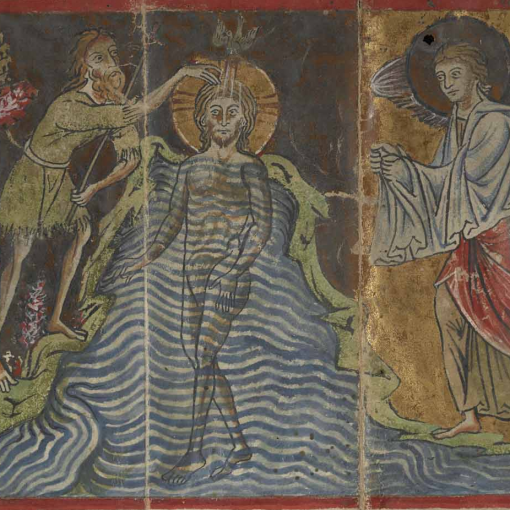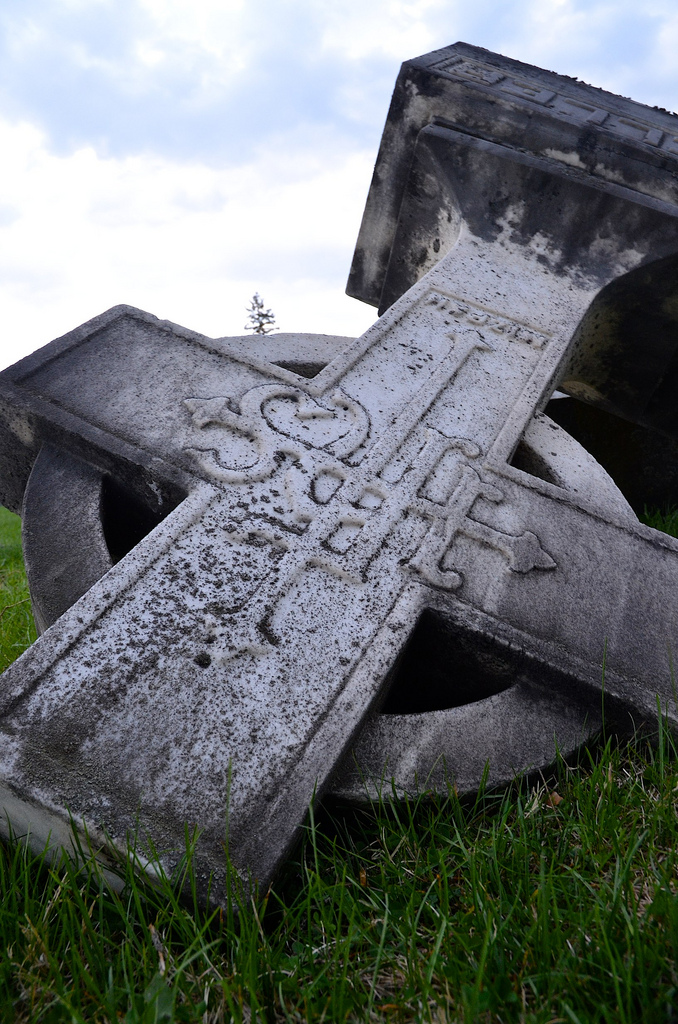
Proper 20 (25) (September 22, 2019)
Good Shepherd, Lexington
First reading and Psalm
Jeremiah 8:18-9:1
Psalm 79:1-9
Second reading
1 Timothy 2:1-7
Gospel
Luke 16:1-13
Help us, O God of our salvation, for the glory of your name;
deliver us, and forgive our sins, for your name’s sake. (Ps. 79:9)
Amen. ✠
On the way into work this week I was tired of the news so I put on a 1970s playlist with some of my favorites that I used listen to on my way to school back in the day. There was a good bit of Bob Dylan on it and as I was driving his tune “When You Gonna Wake Up” came on. In the heart of the song came the lines,
You got innocent men in jail, your insane asylums are filled
You got unrighteous doctors dealing drugs that’ll never cure your ills
Adulterers in churches and pornography in the schools
You got gangsters in power and lawbreakers making rules
When you are going to wake up, when you going to wake up
When you are going to wake up and strengthen the things that remain? (Rev. 3:2)
So much for avoiding the news of today! It was forty years ago this year that this song was released on the album Slow Train Coming. I went back and listened to the entire album and it feels as relevant today as ever. It is even particularly suitable for today’s readings.
Those who know something about our lectionary, that is, the set of readings we have each Sunday, know that they are not all chosen to go together. In our current place in Year C, we are reading through the Gospel of Luke and, as we are in the Season after Pentecost, our First Reading from the Old Testament is not designed to go with the Gospel, but rather is taking us through the prophets, currently much of Jeremiah. Our Epistolary readings will take us through much of First and Second Timothy. Yet as I read through them all and prayed about our service this Sunday, I found several converging and repeated themes in the readings. Themes that Bob Dylan explored 40 years ago.
So, the question is, would it make you feel more comfortable if I preached today about money, politics, or power? You can take your pick! Because it will be the same sermon no matter what you choose. At the heart of all our readings this morning, is the use and abuse of power and priorities.
Let’s start with our first reading from Jeremiah. The prophet is a bit like Scott Simon on NPR’s Weekend Edition giving his assessment of the news of the week. Jeremiah looks around at all that is going on in Jerusalem and Judah and his heart is broken. “For the hurt of my poor people: I am hurt, I mourn, and dismay has taken hold of me.” It is the turn of the 6th century BC (from the 600s to the 500s) and God has charged Jeremiah with the unenviable task of confronting the king and the priests who are in leadership over Judah and Jerusalem.
They are the leaders of God’s people, his anointed king and anointed priests, and yet they have rejected God’s teaching. Jeremiah tells us that they no longer care for “the widow, the orphan, and the stranger in their midst,” that is, the poorest and most vulnerable among them. They are not treating their servants and slaves fairly. Rather than following God’s Law, the leaders and the people are concerned with their own wealth and security and care nothing for the helpless and the needy. The leaders of Judah have rejected the Lord as their God and instead look for their security in treaties with other countries and make sacrifices to other gods. They abused their power and position and the result is the destruction of them all. Nebuchadnezzar came from Babylon and the people, the city of Jerusalem, and the Temple were all destroyed…and it grieves Jeremiah.
9:1 “O that my head were a spring of water, and my eyes a fountain of tears, so that I might weep day and night for the slain of my poor people!”
This is, of course, the barest of summaries of the Book of Jeremiah and the history of his time. Yet I have always found it imminently relatable. It doesn’t matter who is in power or what country I have lived in or, for that matter, whether we are talking about the leaders of countries, communities, corporations, or churches. The people of the community are the ones who bear the consequences of the decision of leaders. In Jeremiah we find that many people are eager to follow God, to turn back to the Lord and follow his ways, yet there were false teachers and political leaders who misled them with plausible and pleasing promises. (Hananiah in Jer. 28) They claimed to be followers of the Lord, yet they taught and did only what benefited themselves. Where the head goes, the body follows.
This is why Paul instructs Timothy (and us) to pray for all, but especially our leaders.
2:1 First of all, then, I urge that supplications, prayers, intercessions, and thanksgivings be made for everyone, 2 for kings and all who are in high positions, so that we may lead a quiet and peaceable life in all godliness and dignity.
Paul is praying as much for the leaders to get out of the way as anything else! We pray for them “so that we may lead a quiet and peaceable life.” Paul seems to be saying, “You know that everyone should be prayed for, but make sure you even include kings and all who are in high positions. Why? For all the reasons that we pray for everyone else, so that all would “be saved and come to the knowledge of the truth. [that] there is one God; there is also one mediator between God and humankind, Christ Jesus, himself human, who gave himself a ransom for all.”
The difference between Jeremiah’s time and Paul’s is that in Paul’s day, like our own, the rulers and leaders were not expected to be followers of the Lord. The King of Judah was a Son of David, anointed by the High Priest and was supposed to follow the Law of God. In Paul’s day the Romans ruled the entire Mediterranean and the Romans basically had a policy of allowing their subjects to worship whomever they liked, so long as they did not cause trouble. It was not exactly the religious freedom and tolerance that the we espouse in the United States today, but it was something like it. And so Paul encourages Timothy to pray that those in power would allow them to peacefully be about proclaiming the Gospel of Christ crucified for the world.
Paul still prayed for their conversion as well, so much so that, when he was arrested, he invoked his privilege as a Roman citizen to argue his case in front of Caesar so that even the ruler of the world might know the name of Jesus. It was a missionary effort that cost Paul his life, but it was a sacrifice he willingly, even eagerly, made.
Today we have mixed expectations of our leaders, especially political ones. I think Paul and James would argue, if they claim to be Christians then let them show their faith in their lives and commitments. But if they are not, pray that they would know Christ and, if nothing else, allow us all to “lead a quiet and peaceable life in all godliness and dignity.” Religion and politics, of course, is a dangerous mixture.
A friend of our family is the political commentator Cal Thomas. Some of you may know of his writings or have seen him on TV. His wife and my mother were good friends and I grew up with their children, attending the same church outside of Washington DC. In the early 80s Cal was the communications director and vice president for Jerry Falwell’s Moral Majority. It was a conservative movement that, among other things, worked to place Christians in Congress. About fifteen years ago, reflecting on that time, Cal told me that ultimately it was a failure. “We sought to convert Washington,” he said. “Instead, Washington converted us.”
You can, and no doubt already are, filling in the gaps in your minds as to which of todays leaders you believe are faithful and which are leading us astray. Like Bob Dylan, I could preach this sermon in the 70s, 80s, 90s, 2000s, today, and no doubt tomorrow. Because our leaders are human, just as human as we are, and even the most devout and faithful sometimes get their priorities confused.
This is the challenge for all Christians, not just leaders, to keep our focus upon living the life that God has called us into. When Jesus tells the story of the devious manager in today’s Gospel, the lessons drawn out from it are not of deception, but faithfulness. “Whoever is faithful in a very little is faithful also in much; and whoever is dishonest in a very little is dishonest also in much.” (Luke 16:10)
Whether it is at school or at a job, in Frankfort or in Washington, we must all be faithful with the responsibilities entrusted to us, always beginning first with our call to be obedient to God. “No one can serve two masters; for you will either hate the one and love the other, or be devoted to the one and despise the other.”
Bob Dylan sang about this on that album as well.
You may be a preacher with your spiritual pride
You may be a city councilman taking bribes on the side
You may be a business man or some high-degree thief
They may call you Doctor or they may call you Chief
But you’re going to have to serve somebody, yes indeed
You’re going to have to serve somebody
Well, it may be the devil or it may be the Lord
But you’re going to have to serve somebody
In this parable, Jesus is not saying that we should be like the dishonest manager and only look out for ourselves. But he is also not saying that we should not be in business or politics or education or ministry…. Jesus, Jeremiah, and Paul (and Bob) are all saying that we have one master, one God and Lord whose law and love should govern our lives.
We are not the King of Judah or Caesar, but we are all called to love the Lord our God with all our hearts, with all our minds, and with all our strength and to love our neighbors as ourselves. Our first commitment must not be to a tradition, a political ideology, or even to our own family and friends. Our first commitment must be to God and his Kingdom. And, as Jesus taught us, if we seek first the Kingdom of God and its righteousness, if God’s priorities are our priorities, then all these other blessings and riches will be added to us.
What are your priorities? Who do you serve?
Grant us, Lord, not to be anxious about earthly things, but to love things heavenly; and even now, while we are placed among things that are passing away, to hold fast to those that shall endure; through Jesus Christ our Lord, who lives and reigns with you and the Holy Spirit, one God, for ever and ever. Amen. ✠





